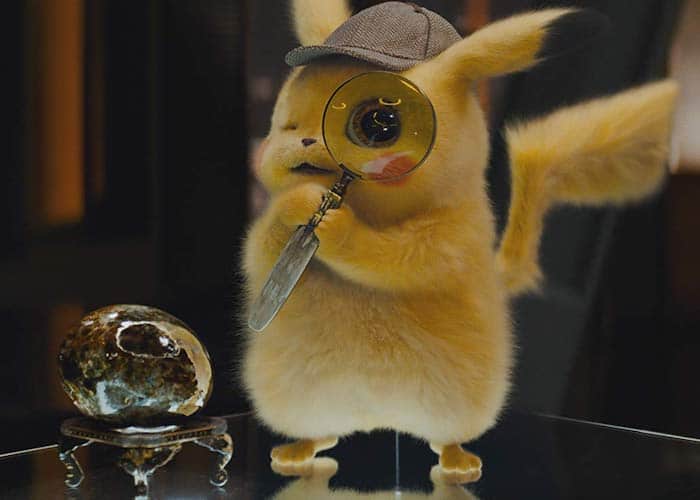
Despite catering to a niche audience, Pokémon: Detective Pikachu is going to be seen by a very large set of moviegoers this weekend. Some of them are going to want to learn more about the Pokémon franchise, maybe check out those animated features from 20 years ago. Others may be intrigued by the story and wish to see something with a similar plot done better (see my review for my issues with the script). The latter group is where this curation comes in.
This week’s Movies to Watch After list mostly includes titles that are appropriate for kids, befitting a PG-rated release such as Detective Pikachu, but there are a few selections here that are just for the parents and other grown-ups seeing the silly film about the talking Pokémon. No, Deadpool didn’t make the cut, but due to Ryan Reynolds doing similar yet kid-friendly shtick here, that’s certainly something for young Detective Pikachu fans to mature into enjoying one day.
Buddy (2018)

Let’s kick things off with this week’s documentary pick. Unfortunately for most of us, there is no documentary explaining Pokémon either as an informational look at the franchise or consideration of the phenomenon of its fandom. So here’s a film that relates to the idea of what it would be like if Pokémon were real. In the Rhyme City of the Detective Pikachu movie, the “pocket monsters” are sort of like service animals. Or maybe the human characters are in service to the Pokémon?
Buddy is an immersive verite documentary by renowned Peruvian-born Dutch filmmaker Heddy Honigmann that showcases the lives of people with service dogs, presenting the profound connection shared between those humans and the animals who are more than mere pets. It’s not just a cute and heartwarming animal documentary, either. The characters in Buddy include people with a variety of disabilities, from blindness and paralysis to PTSD and autism. We’re brought into their lives, empathically coming to understand their needs and how the dogs help with those needs.
A Wrinkle in Time (2018)
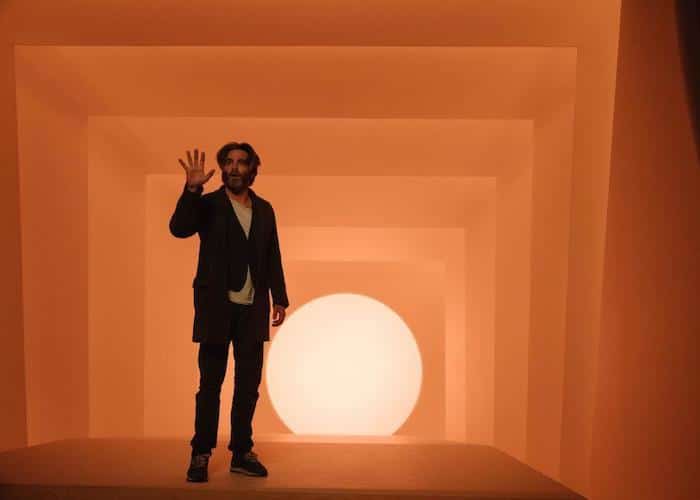
First, let me admit that I was disappointed with A Wrinkle in Time when it came out. Ava DuVernay’s adaptation of Madeleine L’Engle’s classic children’s novel was, like Detective Pikachu, one of my most anticipated of the year, and it just didn’t satisfy my expectations. Now I can at least appreciate the movie as a visual treat, even if the storytelling isn’t always on par with the images on the screen. And at least the script is never just vapid or dumb like that of Detective Pikachu. The characters in A Wrinkle in Time also seem like real people who could exist outside this fantastical narrative. Well, the human characters anyway.
Also like Detective Pikachu, this movie is about the search for a missing father (Chris Pine) who was thought to be dead. He turns out to just be trapped in another realm. Not inside a talking CG creature but somewhere across the universe. The main character, Meg (Storm Reid), does have some interesting companions along the way, however, in the form of three fabulously wise women (Reese Witherspoon, Oprah Winfrey, Mindy Kaling) who happen to be aliens. After a long strange trip through the cosmos and battling evil, she’s able to be reunited with her dad. If you wish for more movies about kids searching for their father after this one, my list of Movies to Watch After A Wrinkle in Time includes In Search of the Castaways and Winter’s Bone.
Kubo and the Two Strings (2016)
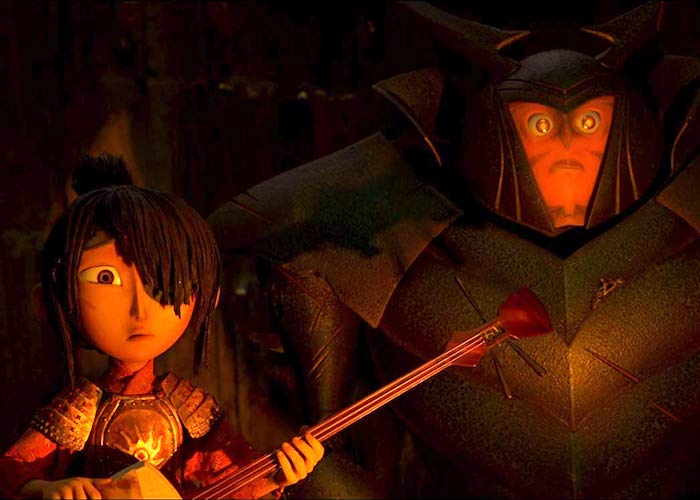
I hate to spoil other movies in these lists, but in order to explain why Kubo and the Two Strings is worth watching after Detective Pikachu, I need to give away one of its late reveals. Or hint at it. Honestly, this spoiler is hardly a spoiler because, like in Detective Pikachu, it’s pretty obvious way before it’s confirmed by the reveal in the film and also because the reveal doesn’t spoil the story so much as provide for an emotional character moment. Besides, there are other revelations and plot points that don’t correspond and can still be a surprise.
The titular hero (voiced by Art Parkinson) of Laika’s stop-motion animated feature is, like the Pokémon franchise, from Japan. And he encounters many fantastical characters, some of them becoming his companions in his adventure, including a talking monkey (Charlize Theron) and a samurai beetle/man hybrid (Matthew McConaughey). The latter has amnesia, just like Pikachu, and he says he was, just like Pikachu, previously the partner (well, apprentice) of Kubo’s father, who went missing and is believed dead (hint hint). Kubo is not a quest to find his father, however, just his father’s armor.
Zootopia (2016)
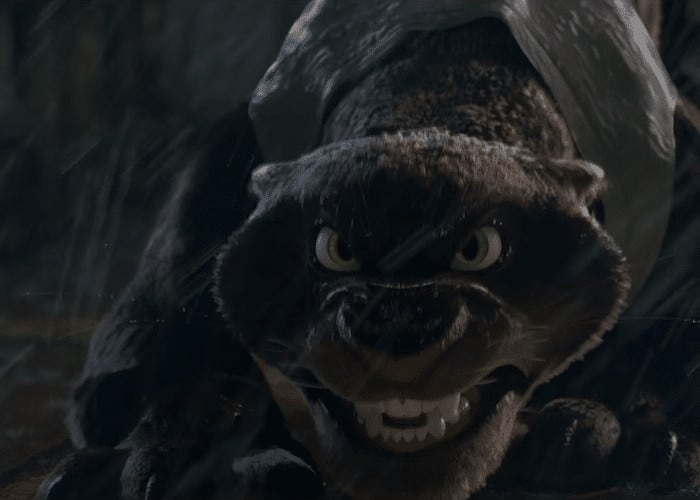
In a world where seemingly incompatible species live in harmony — by design of a great utopian metropolis built with such balance in mind — a newcomer from outside the city investigates a case of a missing person. Teamed up with an unlikely partner, our hero uncovers a conspiracy involving a drug that causes creatures to turn savage. Sound familiar? This synopsis could describe the premises of both Detective Pikachu and the Oscar-winning animated feature Zootopia.
The Detective Pikachu video game, upon which the new movie is based, and Disney’s Zootopia both began production around the same time, in 2013, and I’m curious if somehow they originated, perhaps accidentally, out of the same idea. Did someone at Nintendo overhear the premise of Zootopia? Did someone at Disney overhear the premise of Detective Pikachu? Their similarities are likely a coincidence, but it’s a very big coincidence. The greatest difference is that, while both movies involve some incredible world-building to the extent that you can imagine visiting the metropolises on screen, Zootopia also has a script that is true to the detective genre and comprehensive with memorable characters written at least deeply enough for a family film.
Central Station (1998) and All About My Mother (1999)
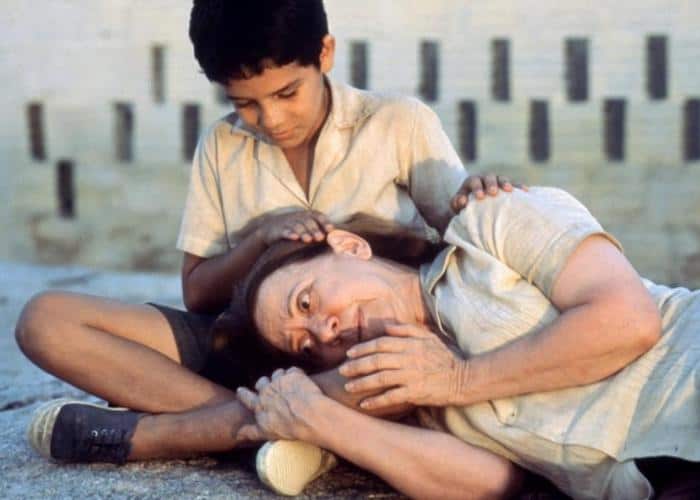
Now it’s time to get a little highbrow with two foreign films that are not necessarily for kids but also aren’t necessarily inappropriate family viewing, either. Save for the subtitles that younger fans of Detective Pikachu can’t read. First is Walter Salles’ Central Station, a Brazilian drama about a boy in search of the father he never knew. The reverse of Tim in the Pokémon movie, the boy travels from the city to the country and while he’s not accompanied by a talking Pikachu, he’s got a much, much, much better traveling partner: a retired teacher played by the legendary Fernanda Montenegra (who earned an Oscar nomination alongside the film’s Best Foreign Langauge Film nod) who initially wants nothing to do with him. It’s not quite a mystery film so much as just a genuinely human tale that’s never overly sentimental in the way you expect of such stories.
The second arthouse pick is Pedro Almodovar’s Oscar-winning film All About My Mother, which is sort of about the search for a biological father, but that person is transgender, hence the title having a double meaning. When a boy is hit by a car and dies (mirroring the boy’s mother being hit by a bus and dying in Central Station if you watch these together), his known mother decides to travel in search of the trans woman, a prostitute in Barcelona. Although in this film the son in search of the parent has been killed, there’s one way to read All About My Mother as being a story written by the boy — he’s seen penning this fantasy biography, title and all, after watching All About Eve, hence the name — imagining his own origins. Perhaps he actually had a straight male father, but since he didn’t know anyway, he dreamed up something more interesting.
Who Framed Roger Rabbit (1988)
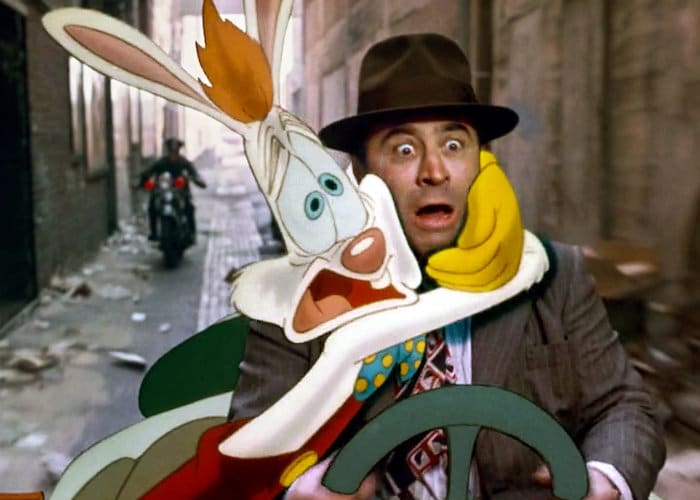
After Zootopia, this Robert Zemeckis classic shares the most story elements with Detective Pikachu. Both movies are about humans paired up with an animated creature with a motormouth for a film noir style detective story involving the harmonious integration of people and cartoons (well, they’re not technically cartoons in Detective Pikachu, but basically they are). And the villain of both turns out to be, in some way, a hybrid of the two worlds. But their evil intentions are completely different, and although the crimes in both light mysteries are tied to a murder, the investigations are nothing alike.
Although based on a novel, Who Framed Roger Rabbit pretty much centers around original characters who hadn’t been familiar to audiences before the movie’s release and does a good job quickly establishing them and their world of toons mixing with humans. But the movie also features a lot of famous cartoon characters in cameos, most of them for background gags and occasionally foregrounded highlights, such as with a studio-crossover musical showdown between Daffy Duck and Donald Duck. At the time, if not now, all of those famous characters were known by pretty much everyone and so it wasn’t quite the kind of niche fan-service cameos Detective Pikachu has for its supplementary Pokémon.
Murder, My Sweet (1944)
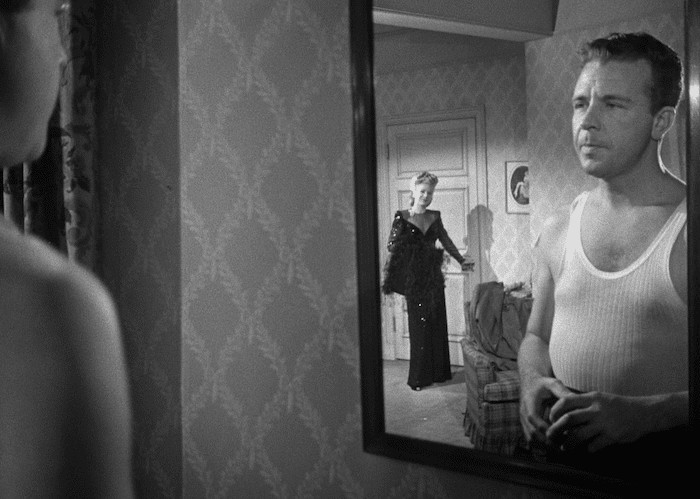
If I have one wish for Detective Pikachu, it’s that the movie will spawn at least some later fans of film noir. The Pokémon movie and video game it’s based on are very loose in their link to the genre, but like Who Framed Roger Rabbit, there’s enough there to hopefully influence some kids to follow the path to classic movies with similarities. One of the best and earliest and most relevant to this purpose is Edward Dmytryk’s Murder, My Sweet, based on Raymond Chandler’s Farewell, My Lovely and the first true Philip Marlowe movie, with the character portrayed by Chandler-approved Dick Powell.
No, the missing person isn’t the detective’s father. No, the deceptive woman character isn’t a Ditto in disguise. No, the nightclub singer isn’t a Jigglypuff. And Marlowe doesn’t investigate the case at hand accompanied by a Pikachu. But like most Chandler-based films noir, this one is plenty convoluted but in a way that’s always intriguing in its complexity, unlike the twists and red herrings of Detective Pikachu. From Murder, My Sweet, you can jump into other Chandler adaptations, such as The Big Sleep, and go deep into film noir, with all its dark beauty, from fellow 1944 essential Double Indemnity to the end of the classic period for the genre with Touch of Evil.
Related Topics: All About My Mother, Detective Pikachu, Disney, Film Noir, Movie DNA, Zootopia
